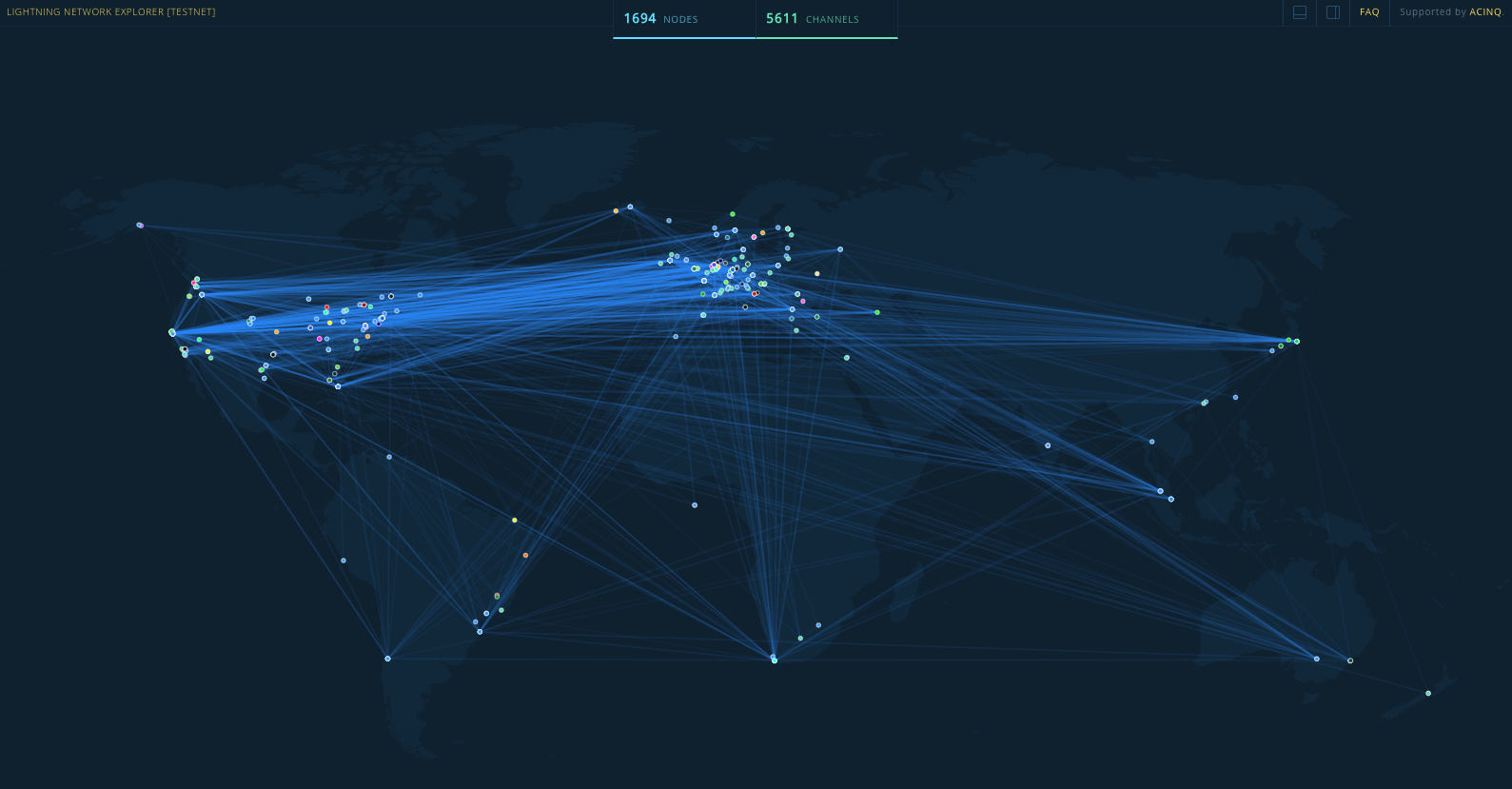three theses

ACINQ Lightning Implementation Live on their Testnet https://explorer.acinq.co/#/
One of the unusual things about looking at promising crypto projects focused on decentralization is that many are already well capitalized. As an investor it means that conversations are quite balanced and you have to spend as much time pitching the entrepreneur as they are you.
It's not the subject of this post but it does force us to distil our USP as investors. (As a "traditional" VC, I often tell entrepreneurs that while we're only halfway down the rabbit hole, sometimes it helps to have an ear above ground and an ear below). For example, many projects aren't properly equipped to properly hire and build out teams to fulfil the ambitious goals they have set for themselves (and that their current valuations price in).
One of the most important qualities we can bring is strategic perspective, and one way to gauge that is to have a dialogue about our theses and perspectives. With that, I wanted to quickly list out my theses in the space and get your feedback. None of these are rocket science or particularly groundbreaking, but they are a helpful framework for me.
Simple and Secure UX
My grandma got an iPhone last year. She just got FaceTime down. Imagine my grandma trying to convert some RDN into ETH on etherdelta using her Ledger. "Grandma, make sure the wallet holding RDN tokens has enough ETH to pay for the gas costs!"
To be clear, we've made huge strides here, particularly with regards to wallets and exchanges. We are investors in two plays here, Luno and Revolut, and no one can deny how strong the UX at Coinbase is, but we're only scratching the surface of what's possible, particularly when you look at use cases of blockchains beyond buying/selling. There are some well established projects trying to become the light client / ethereum browser of choice (Status, Toshi, Metamask, etc), but I think the playing field is still wide open here for someone who can combine an elegant UX with ironclad private key storage, ideally with a social layer included. Wouldn't it be nice if we could have a more-private social media environment that didn't rely on advertisers and other actors trying to influence our thoughts in order to monetize?
Scalability
In 2018 scalability should really become a hygiene factor. Network throughputs have been put to the test earlier than anticipated and while the ecosystem is iterating rapidly we're still nowhere near transaction speeds (or costs) traditional databases offer. The ~15 tx/sec on ethereum clearly doesn't cut it and suffice to say that any project that can meaningfully improve throughput is going to be valuable. I tend to think about these solutions in two ways. Firstly, there are solutions that are enabling off-chain computation and then on/off-chain reconciliation. Secondly, there are solutions to increase on-chain throughput. Some exciting projects addressing scalability include Tendermint (can get ETH to 200 tx/sec and Tendermint core can run up to 5,000 tx/sec), Truebit, Raiden (ETH version of lightning), Plasma, Sharding, and of course Lightning Networks that are already live on BTC mainnet) and testnets. With Lightning Networks I do worry about the requirements to open and close payment channels on-chain and that in practice they seem to trend towards recentralization. But perhaps until we see stronger adoption that's neither here nor there. (Open question?)
Interoperability
Coincap.io now lists >1,000 tokens. That's more than a thousand networks or public blockchains. While ERC20 and other token standards and individuals ecosystems like NEO or Cardano have created a degree of interoperability among many subsets of blockchains, many others resemble LANs that aren't connected to the internet with TCP/IP. We're at a speculative frenzy right now where many people are taking advantage of the funding environment to establish new networks of dubious durable value. If you believe in a decentralized future it will be key to be able to link those networks on a more fundamental level (without committing the blunder of recentralization). Why? Well direct asset-to-asset fungibility is an interesting monetary development that precludes the need for a generic store of value (read: money). Moreover, if I just tend to think that more and more valuable data is going to be stored on blockchains that other applications or middleware will want to leverage. Some projects here that are neat are well known like Web 3 and Polkadot, or Tendermint with their Cosmos network (allowing for communication via IBC, the inter-blockchain-communication protocol). I also like projects like oraclize that are doing important work linking smart contracts to external web APIs and providing channels and validation to allow blockchains to speak to the outside world.
Anything I've missed or gotten wrong? Would love to have your thoughts.